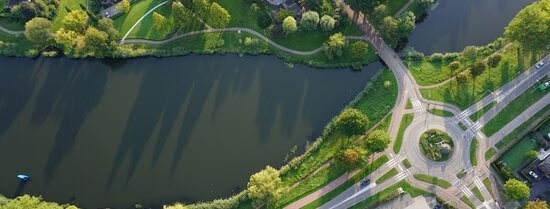
What are we researching?
Our society faces significant challenges, including those related to climate, liveability, sustainability and biodiversity. How can we deal with and realise these challenges through integral spatial designs? And how do we ensure that users and residents feel at home in those spaces? The research focuses on both new construction and 'rejuvenation & renewal' in interaction with the surroundings.
Why and how are we doing this research?
The research focuses on the process of designing, realising and generating value. It provides concrete directions for the future through imagination and design power: problem finding and problem-solving. And through the design of paths to get there. A unique feature of this research is its integral focus: together with researchers from various disciplines and participants from the field (public, private, society), challenges are explored and solutions sought. Both the pursuit of impact and the method of cooperation (transdisciplinary) create added value. The link with the actual realisation (action research) is interesting and important because, without execution, there is no impact. The research focuses on integral designs and the organisation, management and further development of (large) infrastructural projects and programmes and on playing with complexity in the process.
How does our research make an impact?
With our research (mainly action research), we try to visualise future possibilities and make them tangible through studies such as 'Highway and City' and 'Station of the Future'. It provides inspiration and direction. This applies to the content and the paths we take to get there, such as how we manage large projects in a complex environment with both opportunities and threats.
Our research tries to generate added value that is fit for purpose, sustainable, with value for money and future-oriented. This involves various levels of scale and both projects (such as tunnels) and programmes (such as the replacement and renovation task). We have a particular interest in research methodology and the learning ability of organisations and the sector to realise the greatest possible impact.
By actively participating in Resilient Delta, it is possible to conduct the research in cooperation with Erasmus University Rotterdam, Erasmus Medical Centre and Delft University of Technology and to strive for broad impact with public, private and social actors.
